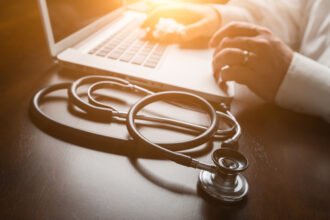The United States has long been a melting pot of cultures, beliefs, and languages, and U.S. healthcare organizations regularly encounter the diversity that exists across this small, blue planet. The size of the population speaking English as a second language, furthermore, continues to grow as a percentage of the total U.S. population.
The United States has long been a melting pot of cultures, beliefs, and languages, and U.S. healthcare organizations regularly encounter the diversity that exists across this small, blue planet. The size of the population speaking English as a second language, furthermore, continues to grow as a percentage of the total U.S. population.
Because of this growth, hospitals need to think globally, but act locally. Thinking globally is more than just recognizing we need to break out the sanitizer when someone sneezes. It’s about exercising understanding, tolerance, and empathy in our communication with others; although there are many worldviews, there is only one world through which we are all connected. When we take this approach, it becomes hard to draw lines in the sand that separate us from other people.
Technology in the Field
Hospitals have many unique challenges because of the constant need to protect and ensure their patients’ information remains private. This, however, does not diminish the need for healthcare organizations to employ technologies that create zero distance. In healthcare, the phrase “zerodistance” refers to having no physical restraints on the ability to communicate, as well as to be able to manage patient data.
There should be zero distance between my language and yours, zero distance between an X-ray taken in a rural hospital and the metro-based expert who can interpret it, and zero distance between my family doctor’s medical records and the physician I’m immediately in contact with when my body is in a clinic in Morocco.
The technology required to achieve this demands continuously improving networks, end-user devices, and software to create the virtual presence and intelligence necessary for a zero-distance world. Patient privacy is important, but the ability to access any and all information that could aid in a medical situation and communicate outside of a patient’s common medical facilities is also crucial.
Regardless of this talk about virtual presence and zero distance, a clinician cannot put a cast on me over the web, although he could check my blood pressure. What it comes down to is that hospitals need to act locally to positively impact the health of their communities. The question is: are you acting locally while seeing the global trends in technology and practice that improve patient care?
Effects of Natural Disasters and Preparedness
Natural disasters cause problems for everyone and everything, and hospitals and physicians are not excluded. Between the damage inflicted upon New Orleans several years ago with Hurricane Katrina and, most recently, Hurricane Sandy on New York, for example, politics, cost, and the technology available can all play an important role in the quantity and quality of support hospitals can anticipate.
In the Marines, we were taught to identify our weak areas, plan for the worst, and anticipate the next move. If you can’t fix all your weak areas, then at least pick one to focus on; do that one thing right. Whether your clinic grapples with language barriers, struggles to provide information to other healthcare providers, or has trouble anticipating the needs of your patients in disaster situations, zone in on the problem. The people in your care deserve the strongest treatment you can provide, no matter their differences or difficulties.
In order for hospitals to be able to do their best, they need to have global access they can utilize on a local scale. This means gaining access to resources and constantly improving technology in order to maximize the benefits for their patients. Language or location should never inhibit patients’ ability to acquire the best care possible. The U.S. truly is a melting pot of cultures, beliefs, and languages, and our hospitals should reflect this truth as clearly as any place can.







